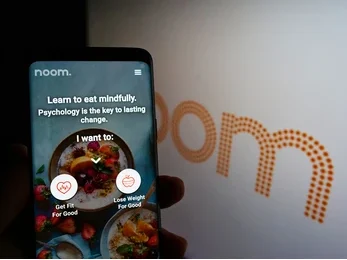Table of Contents
The Noom diet has gained popularity as a weight loss app that claims to help users achieve their goals through behavioral psychology, personalized plans, and a unique color-coded food system. But does it really work? This article delves into the Noom diet and reviews of noom diet, exploring real user experiences, expert opinions, and scientific evidence to help you decide if it’s worth the investment.
Key Takeaways
Understanding the Noom Diet Approach
The Noom diet is more than just a diet; it’s a comprehensive program designed to help you understand why you eat what you eat and how to create new, healthier habits. Let’s dive into the key components of the Noom approach.
Behavioral Psychology in Noom
Noom uses principles from behavioral psychology to help users change their eating habits. The app provides summaries of academic papers on topics like temptation bundling and the roles of hormones like leptin and ghrelin in hunger. These insights are designed to be easily understood and applied to daily life, making it easier to make healthier choices.
Personalized Plans and Tracking
When you sign up for Noom, you start with a detailed quiz that asks about your eating habits, dietary restrictions, and even your mindset around food. Based on your answers, Noom creates a personalized plan tailored to your needs. The app also allows you to track your diet and exercise habits, providing a clear picture of your progress.
Color-Coded Food System
Noom classifies foods into three categories: green, yellow, and red. Green foods are low in calories and can be eaten in abundance. Yellow foods are more calorie-dense and should be eaten in moderation. Red foods are the most calorie-dense and should be limited. This color-coded system helps you make better food choices without feeling restricted.
Noom weight is more than a diet—it’s an entire program designed to help you lose weight by understanding why you eat what you eat and how to create new, more sustainable habits.
Real User Experiences with Noom

Success Stories
Many users have shared their success stories with Noom, highlighting significant weight loss and healthier lifestyles. For instance, some users reported losing over 20 pounds within a few months. The app’s focus on behavioral changes and daily lessons has been praised for helping users develop long-term healthy habits.
Challenges Faced
Despite the success stories, some users have faced challenges. A few found the daily weigh-ins stressful, potentially triggering anxiety or unhealthy habits. One reviewer mentioned that the app’s approach didn’t work for them, causing more frustration than motivation.
Mixed Reviews from Testers
Our testers had mixed feelings about Noom. While some appreciated the structured curriculum and virtual support, others found the app’s tone overly casual and the content sometimes annoying. One tester felt relieved after completing the program, stating it didn’t meet their expectations. Another wouldn’t recommend it to friends or family, despite acknowledging that it worked for others.
Noom’s approach can be a hit or miss, depending on individual preferences and needs. It’s essential to consider personal triggers and goals before committing to the program.
Expert Opinions on Noom

Dietitian Insights
Registered dietitian Destini Moody has shared some concerns about the Noom app, particularly regarding the color-coding of food groups. She believes that while the app promotes accountability and encourages healthy habits, the color system might be confusing for some users. Moody’s insights highlight the importance of understanding the app’s approach to food categorization.
Fitness Trainer Feedback
Certified personal trainers who tested Noom had mixed experiences. One trainer found the app supportive and helpful in promoting accountability, while another had to stop using it due to triggering disordered eating habits. This mixed feedback underscores the need for users to consider their personal history and relationship with food before using Noom.
Psychological Impact
Noom uses cognitive behavioral therapy (CBT) principles to help users change their eating habits and overall lifestyle. This approach aims to foster a positive relationship with food and improve mental well-being. However, some users have reported that the app brought back past issues, highlighting the psychological impact of using Noom. It’s crucial for potential users to be aware of this aspect and proceed with caution if they have a history of disordered eating.
Comparing Noom to Other Diet Programs

Noom vs. Traditional Diets
Noom stands out from traditional diets by focusing on behavioral psychology rather than just food restrictions. Traditional diets often emphasize cutting out certain food groups, while Noom encourages users to understand their eating habits and make healthier choices. This approach can be more sustainable in the long run, as it promotes a healthier relationship with food.
Noom vs. WW (Weight Watchers)
Both Noom and WW (formerly Weight Watchers) offer user-friendly mobile apps and promote weight loss through healthy food choices and lifestyle changes. However, there are key differences:
Noom vs. Other Weight Loss Apps
When compared to other weight loss apps, Noom’s focus on behavioral changes and psychological aspects sets it apart. Many other apps, like MyFitnessPal, primarily focus on calorie counting and exercise tracking. Noom’s daily educational lessons and activities aim to create long-term habits, making it a more holistic approach to weight loss.
Noom’s unique approach, combining behavioral psychology with personalized plans, makes it a compelling choice for those looking to make lasting changes to their eating habits.
| Feature | Noom | WW (Weight Watchers) | Other Weight Loss Apps |
|---|---|---|---|
| Meal Plan | Color-coded | Points system | Varies |
| Price | ~$70/month | Starts at $23/month | Varies |
| Support | Virtual coaching | Coaches & workshops | Varies |
| Focus | Behavioral changes | Healthy habits | Calorie counting |
Noom’s emphasis on understanding and changing eating behaviors, rather than just focusing on food intake, offers a unique and potentially more effective approach to weight loss.
Pros and Cons of the Noom Diet

Advantages of Using Noom
Noom offers several benefits that make it a popular choice for many. Here are some of the key advantages:
Potential Drawbacks
While Noom has many benefits, there are also some downsides to consider:
Cost and Accessibility
Noom’s pricing varies, but it generally ranges from $17 to $70 per month. The app offers a trial period, but it comes with a fee. Here’s a quick look at the cost structure:
| Plan Duration | Cost per Month |
|---|---|
| 1 Month | $70 |
| 6 Months | $32.50 |
| 12 Months | $17 |
Noom’s focus on behavioral changes and personalized plans makes it stand out, but the cost and technology requirements may be a barrier for some users.
Overall, Noom offers a comprehensive approach to weight loss, but it’s essential to weigh the pros and cons to determine if it’s the right fit for you.
Scientific Evidence Supporting Noom
Research Studies on Noom
Several studies have looked into how well Noom works. One 15-month pilot study found that the more people completed their Noom lessons, the more weight they lost. Another study from 2020 with 225 adults showed that Noom helped reduce binge eating days over a year better than standard care. However, this study was partly funded by Noom, so more research is needed.
Effectiveness for Weight Loss
A 2017 study found that people who often track their diet and weight lose more weight over time. Another study with 35,921 people found that 77.9% lost weight using Noom. A 2023 study showed that 75% of people kept off at least 5% of their weight loss after a year. This suggests that Noom can help with long-term weight loss.
Long-Term Health Benefits
Noom’s focus on behavior change and self-monitoring can lead to lasting health benefits. By encouraging users to eat more fruits and vegetables, like fruit that are blue, and less processed food, Noom promotes a healthier diet. However, it’s important to note that Noom doesn’t track all nutrients, which might be a downside for some users.
Is Noom Worth the Investment?
Cost-Benefit Analysis
Noom’s pricing can vary, but it generally ranges from $17 to $70 per month. The cost includes personal coaching, educational courses, and progress tracking. For many, the investment is justified by the comprehensive support and resources provided. However, the upfront payment might be a barrier for some users.
User Satisfaction Ratings
On the Better Business Bureau (BBB), Noom has a rating of 1.15 out of five stars based on 506 customer reviews. Some users have reported billing issues, including being charged even after canceling their subscriptions. Despite these concerns, many users find the program effective for weight loss and appreciate the psychological approach.
Refund and Cancellation Policies
Noom offers a trial period, but some users have faced challenges with canceling their subscriptions. It’s important to read the terms carefully and understand the cancellation policy to avoid unexpected charges. If you decide to cancel, make sure to do so well before the auto-renew period to avoid any issues.
Noom is worth it if you want to lose weight through learning healthy habits and psychological methods.
Overall, whether Noom is worth the investment depends on your personal preferences, budget, and commitment to the program.
Conclusion On Reviews of Noom Diet
In the end, Noom offers a unique approach to weight loss by focusing on behavior change and long-term habits. While some users find it helpful and effective, others struggle with its demands and the potential for triggering unhealthy behaviors. The app’s success largely depends on individual preferences, commitment, and budget. If you’re willing to invest the time and money, Noom could be a valuable tool in your weight loss journey. However, it’s essential to consider your personal needs and consult with a healthcare professional before starting any new diet program.
Frequently Asked Questions
What is Noom and how does it work?
Noom is a mobile app designed to help people lose weight and develop healthy eating habits. It uses psychology-based techniques to change behavior and offers personalized plans, tracking tools, and virtual coaching.
Is Noom effective for weight loss?
Research shows that Noom can help people lose weight both in the short term and long term. However, success depends on how committed you are to following the program.
What are the main features of Noom?
Noom includes features like a color-coded food system, personalized meal and exercise plans, progress tracking, and access to virtual coaches. It also offers educational content on nutrition and healthy habits.
What are the pros and cons of using Noom?
Pros include personalized plans, a focus on behavior change, and virtual support. Cons are the high cost, the need for constant tracking, and the focus on weight loss over overall health.
How much does Noom cost?
Noom’s pricing starts at around $66.35 per month. The cost can be a barrier for some people, especially since it requires a lump-sum payment for the subscription.
Can I get a refund if I’m not satisfied with Noom?
Yes, Noom offers refunds if you reach out to their support team within 14 days of signing up or purchasing a plan enhancement.













Leave a Review